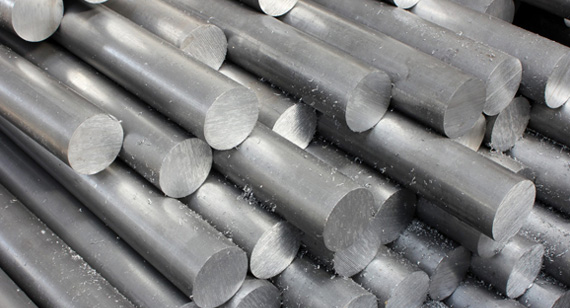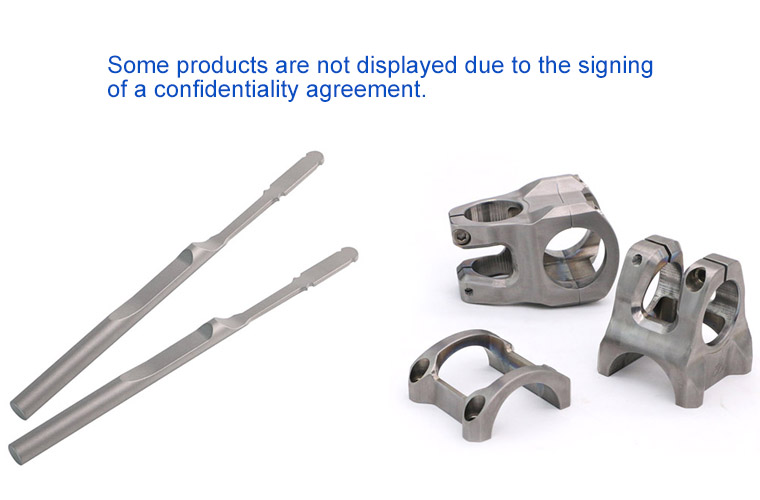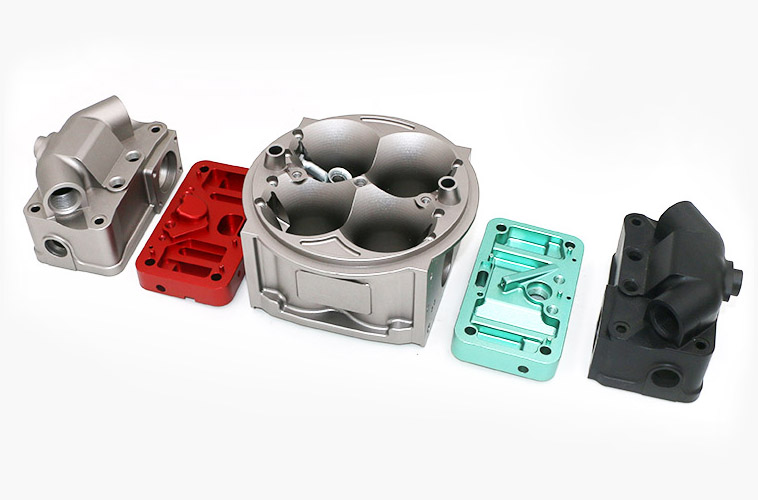15 years one-stop China custom CNC machining parts factory
 419 |
Published by VMT at Jul 09 2024
419 |
Published by VMT at Jul 09 2024
Overview
Titanium, a metallic element, is renowned for its unique physical and chemical properties and wide range of applications. This article will explore the definition, origin, characteristics, grades, and uses of titanium, as well as common questions related to it, providing comprehensive and professional knowledge for experts in the CNC machined parts manufacturing field.
Titanium is the 22nd element on the periodic table, symbolized as Ti. It belongs to the transition metals (group IVB) of the fourth period. Titanium is a silver-gray lightweight metal known for its high melting point, excellent corrosion resistance, and superior mechanical properties. Although titanium is relatively abundant in the earth's crust, extraction and processing are challenging and costly.

Titanium was first discovered in the late 18th century by British chemist William Gregor, who isolated titanium oxide from minerals in 1791. However, it wasn't until 1910 that American chemist Matthew A. Hunter successfully reduced titanium tetrachloride to produce metallic titanium. With advances in smelting technology, titanium gradually became a crucial industrial material.
In the fields of chemistry and engineering, titanium is commonly referred to by its English name "Titanium" or its chemical symbol "Ti."
Titanium is composed of titanium atoms bonded through metallic bonds. The manufacturing process typically involves extracting titanium oxide from titanium ore (such as titanium dioxide) and obtaining metallic titanium through a series of complex chemical reactions (such as chlorination and reduction). The Kroll process is commonly used in modern industry to produce high-purity metallic titanium.
Corrosion Resistance: Titanium exhibits excellent corrosion resistance in various environments, maintaining stability in acidic and alkaline conditions.
Lightweight: Titanium has a low density of about 4.51 g/cm³, roughly half that of steel, yet its strength can match that of some high-strength steels.
High Strength: Titanium possesses a high strength-to-weight ratio, making it one of the strongest commonly used industrial alloys.
Biocompatibility: Titanium is highly compatible with human tissues, causing no allergic reactions or rejections, making it widely used in medical fields.
Heat Resistance: Titanium has a high melting point and thermal stability, maintaining good mechanical properties at high temperatures.
Non-Magnetic: Titanium is non-magnetic, suitable for use in magnetic field-sensitive applications.
Ductility: Pure titanium has some ductility at room temperature, which improves with heating.
Low Thermal Expansion: Titanium has a low coefficient of thermal expansion, helping to maintain dimensional stability.
Excellent Fatigue Resistance: Titanium shows good fatigue resistance under cyclic loading, making it suitable for components subjected to alternating stresses.
The original color of titanium is silver-gray with a metallic luster. During processing, the surface of titanium may form an oxide layer, causing slight changes in color.
Titanium and its alloys can be classified into several grades based on their composition and performance. Common titanium alloy grades include:
Commercially Pure Titanium: Such as TA1 and TA2, used for applications with low strength requirements.
Alpha Titanium Alloys: Such as Ti-3Al-2.5V, used for low-temperature environments.
Alpha+Beta Titanium Alloys: Such as TC4 (Ti-6Al-4V), with excellent comprehensive properties, widely used in aerospace and medical fields.
Beta Titanium Alloys: Such as Ti-10V-2Fe-3Al, used for high-temperature environments.
There is no single "best" grade of titanium as different applications have varying requirements. For example, TC4 titanium alloy is widely used in aerospace due to its excellent comprehensive properties, while commercially pure titanium is favored in the medical field for its biocompatibility.
Various titanium grades can be used for 3D printing, depending on the printing equipment and process requirements. TC4 titanium alloy is commonly used in 3D printing due to its good machinability and comprehensive properties.
The price of titanium is influenced by various factors, including raw material costs, production processes, and market demand. Prices vary significantly between different grades, with high-purity and high-performance titanium being more expensive. Commercially pure titanium of lower purity is usually the cheapest grade. Anodizing is often used to enhance the corrosion resistance and aesthetics of titanium surfaces without specifying a particular titanium grade.
Physical Properties:
Titanium has a high melting point (approximately 1668°C), low density (about 4.51 g/cm³), good thermal and electrical conductivity (though not as high as copper and aluminum), and low thermal conductivity (compared to other metals). Additionally, titanium's low thermal expansion coefficient means that its dimensions change less with temperature fluctuations, benefiting precision and stability.
Chemical Properties:
Titanium's chemical properties are very reactive, but at room temperature, a dense oxide layer (TiO₂) quickly forms on its surface. This layer is highly stable and protects the underlying titanium from further oxidation or corrosion, providing excellent corrosion resistance in various environments, including most acids, bases, salts, and organic substances. However, at high temperatures, especially in oxygen-rich environments, titanium's oxidation rate significantly increases, necessitating appropriate protective measures.
Due to its unique properties, titanium is widely used in multiple fields:
Aerospace: Titanium alloys are extensively used in aerospace for manufacturing critical components like aircraft engine parts, airframe structures, and landing gear due to their high strength, low density, and excellent corrosion resistance.
Medical: Titanium's biocompatibility makes it a vital material in the medical field. It is used to manufacture artificial joints, dental implants, pacemakers, and other medical devices.

Chemical Industry: Titanium is used to manufacture corrosion-resistant pipelines, valves, pumps, and reactors in the chemical industry.
Sports Equipment: Titanium's lightweight and high-strength characteristics make it ideal for manufacturing high-performance sports equipment such as golf clubs, bicycle frames, and tennis rackets.
Automotive: With the increasing trend towards lightweight automotive designs, titanium is becoming more widely used in the automotive industry for manufacturing key components like engine parts, exhaust systems, and suspension systems to enhance performance and fuel efficiency.

Architecture: Titanium is used in the construction industry for manufacturing exterior wall panels, roofing materials, and bridges due to its corrosion resistance and aesthetic appeal.
Lightweight and High Strength: Titanium's low density but high strength contributes to lightweight product designs.
Corrosion Resistance: Titanium's excellent corrosion resistance extends product lifespan.
Biocompatibility: Titanium is harmless to the human body, causing no allergic reactions or rejections, making it suitable for medical implants.
Heat Resistance: Titanium maintains good mechanical properties at high temperatures, suitable for high-temperature environments.
Non-Magnetic: Titanium is non-magnetic, suitable for magnetic field-sensitive applications.
High Cost: The extraction and processing of titanium are challenging, leading to high costs that limit its application in some areas.
Difficult Processing: Titanium's high hardness can cause high temperatures and wear during processing, requiring advanced equipment and techniques.
Low Thermal Conductivity: Titanium's relatively low thermal conductivity may result in poor heat dissipation in specific applications.
What is the density of titanium?
Titanium has a density of about 4.51 g/cm³.
Can titanium prevent rust?
Yes, titanium quickly forms a dense oxide layer at room temperature, preventing further oxidation or corrosion.
Is titanium magnetic?
No, titanium is non-magnetic.
Is titanium a metal?
Yes, titanium is a metallic element.
Can titanium be bulletproof?
Although titanium has high strength and hardness, using titanium alone may not provide adequate bulletproof protection. Bulletproof materials usually require multi-layer structures, including titanium alloy layers and ceramic layers.
What is the difference between titanium and aluminum?
Titanium and aluminum are both lightweight metals, but titanium has a higher density than aluminum, with superior strength, corrosion resistance, and heat resistance. Additionally, titanium is much more expensive than aluminum.
| Attribute | Titanium | Aluminum |
| Density | Heavier (4500 kg/m3) | Lighter (2712 kg/m3) |
| Yield Strength | Lower (170 to 480 MPa) | Higher (200-600 MPa) |
| Tensile Strength | Higher (230-1400 MPa) | Lower (170-1100 MPa) |
| Hardness | Higher | Lower |
| Thermal Conductivity | Lower (17.0 W/m-K) | Higher (210 W/m-K) |
| Melting Point | Higher (3000 – 3040 °F) | Lower (1220.7 °F) |
| Cost | Higher | Lower |
Titanium, with its unique properties such as lightweight, high strength, corrosion resistance, and biocompatibility, has been widely used in aerospace, medical, chemical, sports equipment, automotive, and architecture fields. As technology and processing techniques continue to improve, the application range of titanium will expand. For experts in the CNC machined parts manufacturing field, understanding the definition, characteristics, grades, and applications of titanium will help better utilize this material, providing customers with higher quality and more customized CNC machining services. In areas such as titanium CNC machined parts, CNC machining parts, custom CNC machining, CNC machining factories, CNC prototype machining, and CNC machining services, titanium will continue to play an irreplaceable role.
